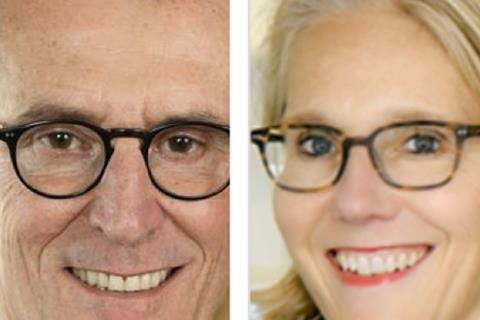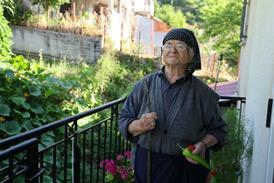
The financial structure incentivising production in Europe and a deep roster of experienced professionals have built an influential regional film and television hub and an attractive proposition for US streamers, two leading European producers told a media conference on Friday.
“Europe is savvy, most countries will have a version of a tax break that will deliver around 20-plus percent relief… It’s got an incredibly deep talent base and there’s a cultural diversity to it, which means that we have an awful lot of stories to tell,” Jane Turton, CEO of All3Media, told the Financial Times Business Of Entertainment Summit in Los Angeles.
Turton, whose UK super-indie has enjoyed recent success with competition series The Traitors as well as Squid Game: The Challenge and Gogglebox through its labels and was recently acquired by RedBird IMI in a $1.46bn deal, outlined the economic realities that have shaped the production environment.
“We look to foreign jurisdictions to help fund content and that’s been the case for many years,” she said. “That gets more acute as budget go up and possibly the domestic licence fees don’t, so we end up making shows for the BBC and needing co-production money. So there’s a necessity from the producer’s side to bring in foreign funding.
“There’s also the necessity from the platform side to find more cost-effective ways of making programming, and Europe does that really well.”
Marco Bassetti, the CEO of Banijay Entertainment and Banijay Live based in Paris, heads the world’s biggest independent production group with more than 120 labels in 21 territories. He agreed with Turton’s remarks and said the rich talent based combined with creativity has made Europe highly competitive.
“Before we didn’t have so much talent to be able to produce a show with the same quality we see in the US. We didn’t have enough stars who could be recognised everywhere,” said Bassetti. “Now it’s changing.”
Bassetti extolled the virtues of large enterprises, which held clear advantages over being a sole producer for example when recouping from a co-production. “Being part of a big group, you have access to more IP, you have better terms of trade, and you can deliver a quality that is hard for a single producer to do.”
Scripted shows like Peaky Blinders and Versailles drive approximately 20% of Banijay’s production revenues. Billionaire Island, the company’s Norwegian Succession, just launched on Netflix. The unscripted content stable includes the likes of MasterChef, and Big Brother.
Turton agreed that the size of the company is important to leverage in the marketplace, noting: “Complexity is best dealt with if you have that broad business with a portfolio, in-house distribution, in-house digital capability, in-house development.
Non-fiction hit The Traitors is a rare example of a show that has been adapted with great success. It originated from the Dutch show De Verraders and was formatted into 30 local versions around the world, with All3Media (through its fully-owned Studio Lambert) and Banijay producing in several markets.
“They’re scarce, these pieces of travelling IP,” noted Turton. “It takes years of production expertise… You need very strong production talent, and development of course. The moment you can make those shows, then you can super-size them because you know how to grow an audience.”
Turton said she wanted to see more platforms invest in European content. “We’re quite big suppliers to Netflix and are quite keen to see some of those other platforms spending more on origination, [like] the Apples and Disneys and Amazons. We’ve algo got the local heroes like the Stans and Acorns that perhaps are less names but are still big partners to us.”

























No comments yet